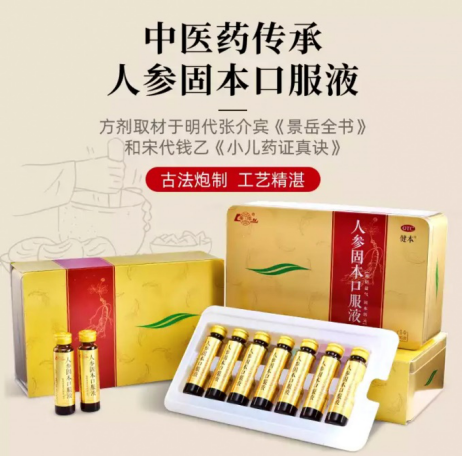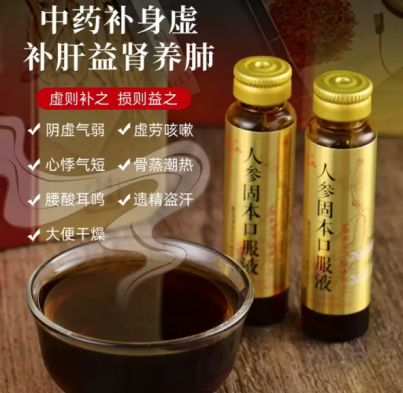The term “Qi deficiency” refers to insufficient Zheng Qi (正气) in the body, specifically a series of pathological changes and syndromes caused by a deficiency of Yuan Qi (元气). Therefore, once Qi deficiency occurs, the functions of promoting, warming, defending, consolidating, and transforming Qi may decline, potentially leading to reduced functional activities of certain bodily systems, decreased resistance to diseases, and other issues.

What are the manifestations of Qi deficiency?
We have a group of friends around us who prefer to sit when they can, and lie down when they can sit. In Traditional Chinese Medicine (TCM), such individuals are defined as having “Qi deficiency”.
Heart Qi Deficiency
1. Heart Qi deficiency and Heart Yang deficiency lead to insufficient circulation of Zong Qi (宗气) in the chest, resulting in chest tightness and shortness of breath. Physical exertion can exacerbate symptoms; for instance, climbing one or two flights of stairs may cause palpitations, and lifting a heavy object or walking a longer distance may lead to shortness of breath.
2. Qi deficiency fails to secure the exterior, leading to spontaneous sweating: particularly prone to sweating, even after a meal, one may sweat profusely.
3. Qi deficiency results in weak blood circulation, leading to pale complexion or a sallow complexion, with a pale tongue and white coating; weak blood flow results in a weak pulse.
4. If the condition progresses, Qi deficiency and Yang deficiency may lead to cold limbs and aversion to cold due to Yang’s inability to warm the body.
5. Additionally, symptoms such as insomnia and vivid dreams may occur.
Liver Qi Deficiency
1. The liver is closely related to emotions; thus, Liver Qi deficiency often manifests as emotional disturbances, such as depression, irritability, mood swings, confusion, slow reactions, memory decline, vivid dreams, anxiety, lack of concentration, and indecisiveness.
2. The liver governs the Chong and Ren meridians, so women with Liver Qi deficiency may experience irregular menstruation, dysmenorrhea, and amenorrhea.
3. The liver opens to the eyes, and abnormalities in the visual organs may present as: eye swelling and pain, unexplained tearing, vision decline, light sensitivity, and visual fatigue.
Spleen Qi Deficiency
1. Reduced d digestive function; 2. Insufficient production of Qi and blood; 3. Disordered water metabolism. Common direct manifestations include excessive salivation and changes in taste; some may feel a lack of flavor in the mouth, indicating weak spleen and stomach function. In more severe cases, lip color may change, becoming pale or dark, and the lips may lose fullness, indicating decreased spleen and stomach function.
Lung Qi Deficiency
Symptoms include coughing with thin, clear phlegm, shortness of breath that worsens with activity, and a particular susceptibility to colds, with symptoms such as coughing, runny nose, and sneezing.
Kidney Qi Deficiency
Symptoms include shortness of breath, spontaneous sweating, fatigue, pale complexion, frequent urination, premature ejaculation, a pale tongue with a white coating, and a weak pulse. Many report lower back pain and weakness in the knees, which may indicate Kidney deficiency. Additionally, early tooth loss and premature graying or hair loss may also be signs of insufficient Kidney Qi.
How is Qi deficiency constitution formed?
1. Insufficient congenital Qi due to maternal malnutrition during pregnancy or one parent having a Qi deficiency constitution.
2. Severe damage to Yuan Qi after prolonged illness.
3. Long-term excessive mental work, damaging the heart and spleen.
4. Long-term dieting leading to nutritional deficiencies, resulting in Qi deficiency.
5. Preference for cold, raw, and rich foods, along with lack of exercise.
6. Emotional stagnation, especially anger during meals.
Qi refers to the driving force of the organs. When the Qi of the five organs is deficient, it has not yet formed a pathological state; it will find various ways to signal you that you are somewhat deficient and should strengthen your health care, thus preventing the development of disease.
Today, I would like to introduce a TCM formula that tonifies Qi and nourishes Yin: Ren Shen Gu Ben Kou Fu Ye, which has the effects of nourishing Yin and tonifying Qi, consolidating the foundation and cultivating Yuan Qi. This formula strengthens the Qi of the lungs and spleen, providing a “tonify the deficient and benefit the damaged” effect for patients with Lung Qi deficiency and Spleen Qi deficiency. It is suitable for those who often stay up late and are in sub-health, menopausal women with Yin deficiency and Qi dryness, and individuals with chronic diseases needing to enhance immunity.

Source Formula
The complete formula of Ren Shen Gu Ben Kou Fu Ye consists of 10 medicinal materials: Ren Shen (人参, Ginseng), Di Huang (地黄, Rehmannia), Fu Ling (茯苓, Poria), Mu Dan Pi (牡丹皮, Tree Peony Root), Shu Di Huang (熟地黄, Prepared Rehmannia), Shan Zhu Yu (山茱萸, Cornus), Shan Yao (山药, Chinese Yam), Ze Xie (泽泻, Alisma), Tian Dong (天冬, Asparagus), and Mai Dong (麦冬, Ophiopogon). It is derived from the San Cai Decoction and the well-known kidney-nourishing formula Liu Wei Di Huang Wan (六味地黄丸).
Based on Liu Wei Di Huang Wan, it adds Ren Shen (which tonifies the Qi of the five organs), Sheng Di Huang and Tian Dong (which clear lung heat and nourish Yin), and Mai Dong (which nourishes the lungs and generates fluids), working together to nourish Yin and tonify Qi, making it suitable for those with Yin deficiency and weak Qi.
The synergistic effect of nourishing Yin and tonifying Qi comprehensively regulates symptoms of both Qi and Yin deficiency
After rationally proportioning the medicinal materials, it inherits the kidney Yin tonifying effects of Liu Wei Di Huang Wan, improving symptoms such as bone steaming, tidal fever, lower back pain, and tinnitus caused by Kidney Yin deficiency, as well as alleviating symptoms of coughing and dryness of the mouth and throat due to Lung Yin deficiency, thus nourishing Kidney Yin and Lung fluids, providing a more comprehensive Yin nourishing effect.
Both Tian Dong and Mai Dong enter the Lung meridian, and when combined with Ren Shen, they form the “Ren Shen Er Dong Bu Qi Fang” (人参二冬补气方), which has a good foundational and immune-enhancing effect for those with Qi deficiency, especially those with Lung Qi deficiency.
Therefore, Ren Shen Gu Ben Kou Fu Ye provides deeper regulation for conditions of Yin deficiency and both Qi and Yin deficiency, with the added benefit of tonifying Yuan Qi.

In TCM, the principle of treating diseases emphasizes “supporting the righteous and consolidating the foundation”. By enhancing one’s own “Zheng Qi” (正气), resistance is strengthened. Many diseases take advantage of Qi deficiency to invade the body. If you are:
Often staying up late leading to sub-health, suffering from chronic bronchitis, tuberculosis, chronic nephritis, hyperthyroidism, constipation, menopausal symptoms, female Qi and blood deficiency, poor sexual function, premature graying, or hair loss,
consider trying Ren Shen Gu Ben Kou Fu Ye, which nourishes both the lungs and kidneys, harmonizes Qi and Yin, and has excellent tonifying effects. It wards off the six excesses from the outside and resists the five evils from within, thus nurturing the source of life and solidifying the foundation of health.

